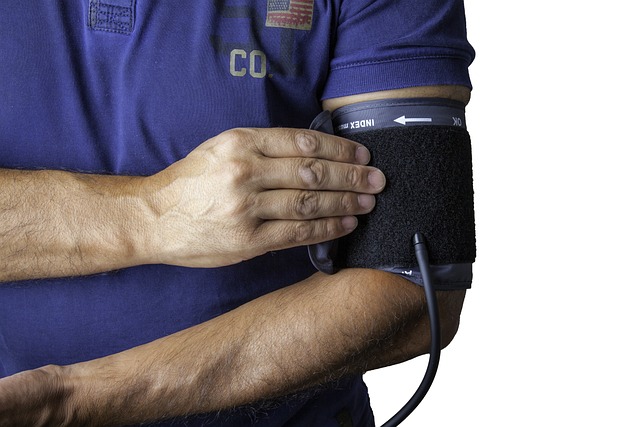Dental Implant Clinical Trials in Germany: What You Should Know Before Joining
Dental implant clinical trials in Germany offer patients access to advanced procedures and contribute to important scientific studies. Depending on the region and eligibility, participants might receive treatments at reduced costs. Understanding the clinical process supports informed decisions about oral care in Germany.

What Are Dental Implant Clinical Trials and Who Can Join?
Dental implant clinical trials are structured research studies investigating new approaches to tooth replacement using artificial tooth roots. In Germany, these trials are conducted at university dental clinics, research hospitals, and specialized dental research centers under strict ethical guidelines and regulatory oversight from the Federal Institute for Drugs and Medical Devices (BfArM) and Ethics Committees.
Eligibility criteria vary depending on the specific study, but generally include:
-
Age requirements (typically 18-75 years)
-
Good general health without conditions that might complicate healing
-
Specific dental conditions matching the trial focus (such as single tooth loss, multiple missing teeth, or full arch restoration needs)
-
No active periodontal disease or uncontrolled oral infections
-
Adequate bone volume for implant placement (though some trials specifically study bone augmentation techniques)
-
Nonsmoking status or limited tobacco use
-
Commitment to attend all follow-up appointments and adhere to study protocols
Many trials exclude pregnant women, patients with certain systemic diseases like uncontrolled diabetes, those taking medications that affect bone metabolism (like bisphosphonates), or individuals with habits that might compromise implant success.
Potential Benefits of Participating in a Dental Study
Joining a dental implant clinical trial in Germany can provide several advantages for participants beyond contributing to dental science advancement:
Access to innovative treatments is perhaps the most significant benefit. Participants may receive cutting-edge implant technologies or procedures not yet available to the general public. These might include advanced surface treatments that promote faster osseointegration, computer-guided implantation techniques, or novel biomaterials with enhanced properties.
Cost reduction is another compelling advantage. While not all trials offer free treatment, many provide the implants, surgical procedures, and follow-up care at significantly reduced costs compared to standard treatment. Some university-based studies cover most expenses as part of their research funding.
Superior monitoring and care quality often characterize clinical trials. Participants typically receive more comprehensive examinations, advanced diagnostic imaging, and closer follow-up than standard dental care. The treatments are performed by specialists with extensive experience in implantology, and any complications are promptly addressed.
Potential participants should recognize, however, that trials also involve certain risks, including the possibility of receiving experimental procedures with less documented long-term success rates, more required appointments for monitoring, and the possibility of additional procedures if complications arise.
How to Find Trials and Understand the Enrollment Process
Finding suitable dental implant clinical trials in Germany requires some research. Several reliable sources can help locate active studies:
-
The German Clinical Trials Register (DRKS - Deutsches Register Klinischer Studien) maintains a searchable database of ongoing clinical trials
-
University dental clinics and their websites often post information about recruiting studies
-
The European Union Clinical Trials Register includes studies conducted in Germany
-
Professional dental associations may share information about ongoing research
-
Specialized implantology clinics sometimes participate in manufacturer-sponsored trials
The enrollment process typically follows several steps:
-
Initial screening through a phone interview or questionnaire to assess basic eligibility
-
In-person consultation with comprehensive oral examination and medical history review
-
Diagnostic procedures including radiographic imaging, possibly CT scans, and dental impressions
-
Detailed explanation of the study protocol, treatments involved, and potential risks
-
Presentation and signing of informed consent documents
-
Assignment to treatment groups (some studies compare different approaches)
-
Treatment planning and scheduling of procedures
Understanding the informed consent process is crucial, as this document outlines all aspects of the trial, including experimental procedures, required appointments, alternative treatments, possible risks, and whether standard treatment will be offered if the experimental approach fails.
Costs and Financial Considerations for Dental Implant Trial Participants
The financial aspects of dental implant clinical trials in Germany vary significantly based on the study sponsor, research focus, and location. While participating can reduce treatment expenses, not all costs may be covered.
| Trial Type | Typical Cost Coverage | Participant Expenses | Average Savings |
|---|---|---|---|
| University-led research | Implant fixtures, surgery, basic prosthetics | Advanced prosthetics, some diagnostics | 60-80% |
| Manufacturer-sponsored | All implant components, surgery | Transportation, some follow-up care | 70-90% |
| Government-funded | Complete treatment incl. prosthetics | Minimal out-of-pocket expenses | 80-100% |
| Private clinic studies | Discounted treatment packages | Portion of surgical and prosthetic costs | 30-60% |
Prices, rates, or cost estimates mentioned in this article are based on the latest available information but may change over time. Independent research is advised before making financial decisions.
Notable considerations include insurance coverage implications, as participating in experimental procedures may affect reimbursement from German statutory health insurance or private insurers. Additionally, while the initial treatment costs may be reduced, participants should clarify responsibility for expenses related to any complications or necessary revisions after the study concludes.
Important Factors to Consider Before Joining a Trial
Before committing to a dental implant clinical trial in Germany, potential participants should carefully evaluate several factors:
Time commitment is substantial, with more frequent follow-up appointments than standard implant treatment, sometimes extending for several years. These appointments are mandatory and may require significant travel depending on the research center’s location.
The research protocol may limit treatment options or necessitate specific approaches that might not be your first choice under normal circumstances. Some trials randomly assign participants to different treatment groups, meaning you may not receive the specific technique you prefer.
The experimental nature of the treatments means they may have less documented long-term success rates than established procedures. While researchers have good reason to believe the experimental approach will work well, results cannot be guaranteed.
Ethical considerations around patient rights are essential to understand. All legitimate trials in Germany must ensure participants can withdraw at any point without compromising their access to alternative treatments. The informed consent document should clearly explain these rights.
When evaluating a trial opportunity, potential participants should feel comfortable asking detailed questions about the researchers’ experience, the evidence supporting the experimental approach, the exact procedures involved, and plans for managing any complications.
Conclusion
Dental implant clinical trials in Germany represent a valuable opportunity for patients seeking advanced treatment options while potentially reducing costs. By understanding eligibility requirements, weighing potential benefits against risks, carefully researching available studies, and thoroughly reviewing the informed consent process, interested individuals can make well-informed decisions about participation. These trials not only provide access to innovative dental technologies but also contribute to advancing dental science for future patients.
This article is for informational purposes only and should not be considered medical advice. Please consult a qualified healthcare professional for personalized guidance and treatment.




